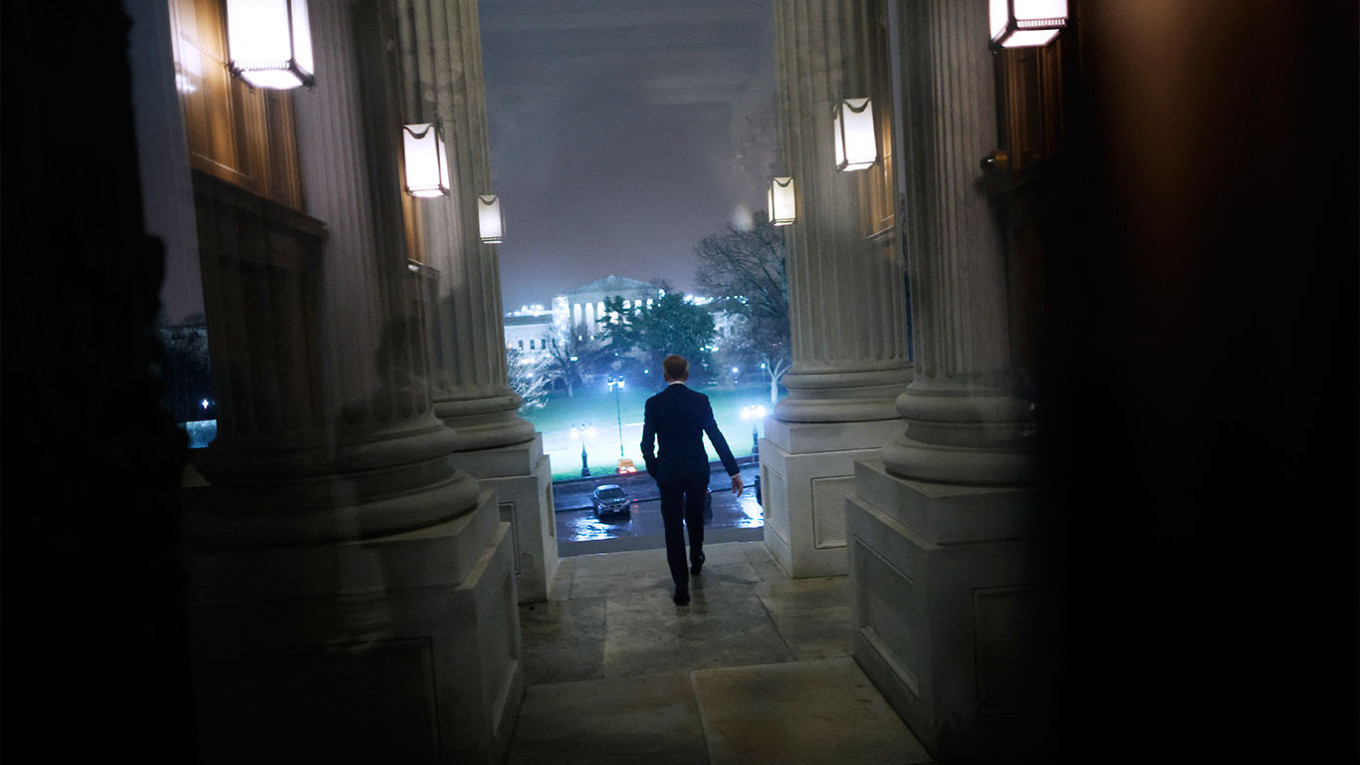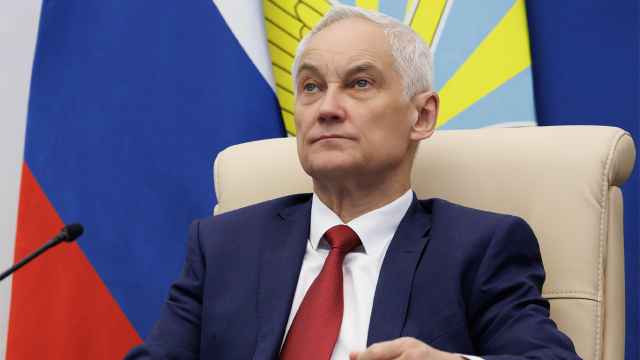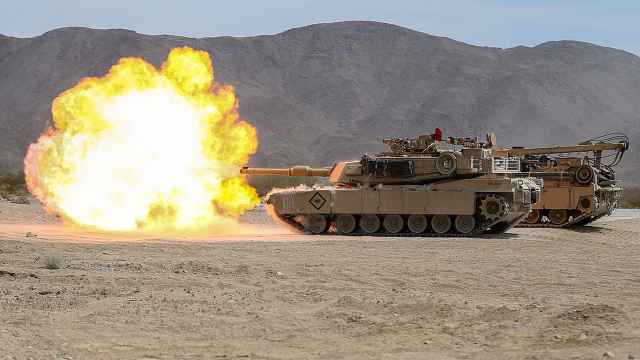There’s a scene in the movie “Don’t Look Up” where Jennifer Lawrence’s character frantically tries to draw attention to a cataclysmic meteorite heading toward Earth. “I have news for you. It’s already a complete disaster,” she shouts.
That is how it feels to watch Congress members argue over aid to Ukraine, oblivious to the grave threat facing the transatlantic alliance without a strong U.S. response to Russian aggression.
Though it has passed its reading in the Senate, the latest aid package for Ukraine continues to be kept hostage to domestic politics and a war for the Oval Office. It seems like a compromise that can result in a ceasefire between Republicans and Democrats does not even exist, as House Speaker Mike Johnson has indicated he might not even allow the bill to be heard.
Congress’s obsession with linking domestic squabbles over the southern border to international politics will only result in Washington playing into Russia’s hands. If common sense had been used, this support to Kyiv would never have been packaged with support for Israel, Taiwan and the southern border.
The war in Ukraine is not one the U.S. can afford to lose, especially when it is still winnable. Ukrainians are still willing to defend themselves and the rest of the free world, but they need something more sophisticated than shovels. Washington’s indecisiveness and indifference will bury its image as a leader of the democratic world and the rule-based order.
None of this is to say that U.S. national security is not an extremely important issue. Immigration policy affects millions of people so demands careful consideration. But Ukraine and the world just do not have the time to wait for a resolution to the U.S. immigration crisis.
Voices across Europe are now raising the seriousness of the threat, The commanders-in-chief of both Norway and Sweden assess the possibility of a Russian attack on Western countries within several years as “highly likely.” Even the Germans are saying the threat is “imminent.”
The current approach of using Ukraine as a resilient punchbag while waiting for some unforeseen event is not a feasible strategy. Declarations of supporting Ukraine for “as long as we can” should be changed to calls for “giving Kyiv as much as it needs as fast as we can.”
At Davos, Lithuanian Foreign Minister Gabrielius Landsbergis stressed that to defeat Putin, the West needs to provide Ukraine with not 40 HIMARS systems but 400; not 80 tanks, but 1,000.
And as Estonian Prime Minister Kaja Kallas rightly noted, “Weakness provokes Russia… strength doesn’t."
However, even if Europe was able to step up in place of the U.S., it would not be enough. The U.S. is responsible for 45% of all aid sent to Ukraine. Even a historic $3.2 billion support package from Britain cannot make up for Washington’s absence. Congress’s failure to deliver vital support quickly will set in motion a nightmare scenario.
The current crisis can be traced to Washington’s prioritization of short-term domestic victories at the cost of long-term geopolitical losses to the U.S. and Europe. This is worsened by the lack of genuine understanding some American decision-makers have of the courageous sacrifices of Ukraine’s determined people.
The political mess in the U.S. sends the wrong message to the rest of the world. As the 2024 election looms, some Republicans meticulously document the mistakes and delays in aid to Ukraine by the Biden administration, asserting their role in safeguarding Ukraine's stability and the American taxpayer. Others keep holding up the new aid package for Ukraine in Congress, often supporting their arguments with Russian narratives.
At the same time, the Biden administration has prioritized Ukraine’s non-defeat over complete victory, opting for incremental support to strengthen Ukraine’s hand at the negotiating table. However, exchanging more territories for dubious Russian promises of peace is a mistake reminiscent of the Minsk agreements.
Former Russian President Dmitry Medvedev has called Ukraine a cancerous growth on historical Russian territories and said “There is a 100% chance of a new conflict, no matter what security papers the West signs with the puppet regime in Kyiv."
According to the Belarusian opposition, Minsk has been preparing for war since the beginning of the full-scale invasion. Unfortunately, it appears that history’s lessons on the futility of appeasing aggressive dictators have not been fully grasped.
At the same time, the outlook on the ground – despite the resilience and determination of Ukrainian forces – is not improving.
Meanwhile, according to Maria Berlinska, the head of the Ukrainian Aerial Reconnaissance Support Center, Russians are on the verge of a technological breakthrough. They are already employing automatic GPS tracking in FPV drones, making traditional means of electronic warfare ineffective.
According to former Ukrainian Defense Minister Andriy Zagorodniuk, the Russians currently hold a threefold advantage in the number of artillery shells fired, which shows how important it is that Ukraine receives new munitions quickly.
Russia’s 2024 budget allocates 6% of GDP for the military, surpassing the amount spent on social programs for the first time in modern history. This does not look like a decision taken by a country preparing for peace. Yet only one-third of NATO member-states manage to contribute 2% of their GDP to collective security.
Voices that support Ukraine, on both sides of the aisle, must find greater leverage and do more to convince themselves and the U.S. public that we must look up.
“Handing Russia victory in Ukraine… will only shred America’s credibility, weaken critical alliances, and force us to contend even more directly with two major adversaries at once,” Senator Mitch McConnell warned, adding: “I honestly can’t think of a more shortsighted strategic gamble.”
The world is looking at the U.S. right now. If it fails, the post-Cold War age of democratic expansion will come to an end giving way to autocracies with semi-free markets and no free thinkers.
The longer we refuse to stare this crisis in its face, the likelier that we will be left standing in the ruins of democracy. We cannot end up like Jennifer Lawrence’s character at the end of the movie, telling ourselves that we are just “grateful we tried."
A Message from The Moscow Times:
Dear readers,
We are facing unprecedented challenges. Russia's Prosecutor General's Office has designated The Moscow Times as an "undesirable" organization, criminalizing our work and putting our staff at risk of prosecution. This follows our earlier unjust labeling as a "foreign agent."
These actions are direct attempts to silence independent journalism in Russia. The authorities claim our work "discredits the decisions of the Russian leadership." We see things differently: we strive to provide accurate, unbiased reporting on Russia.
We, the journalists of The Moscow Times, refuse to be silenced. But to continue our work, we need your help.
Your support, no matter how small, makes a world of difference. If you can, please support us monthly starting from just $2. It's quick to set up, and every contribution makes a significant impact.
By supporting The Moscow Times, you're defending open, independent journalism in the face of repression. Thank you for standing with us.
Remind me later.








